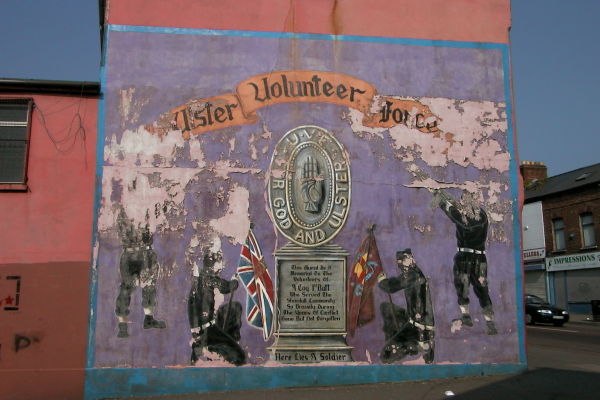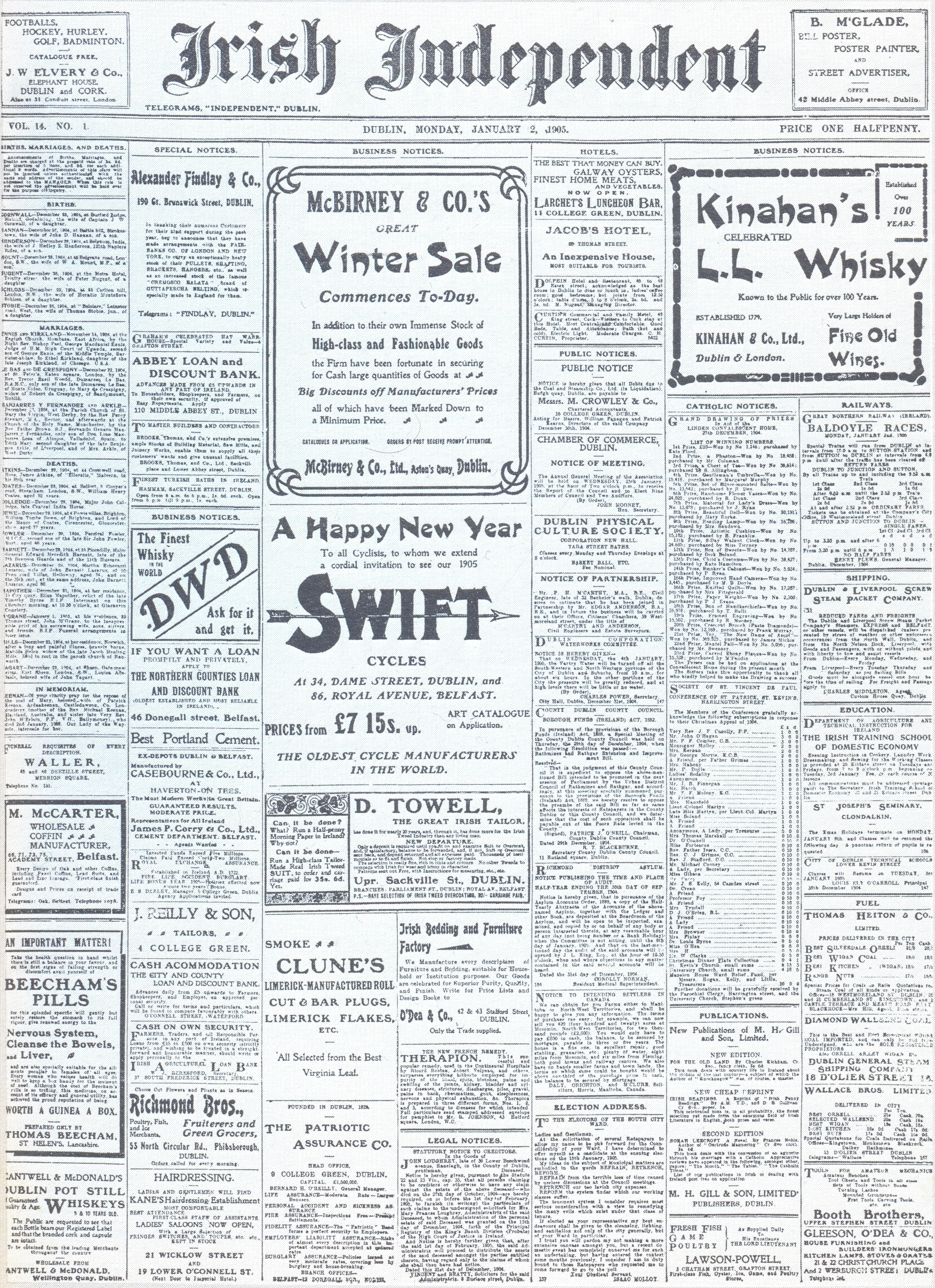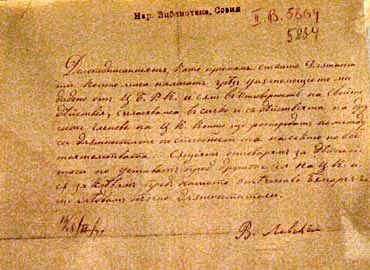|
Robin Jackson
Robert John Jackson (27 September 1948 – 30 May 1998), also known as The Jackal, was a Northern Irish loyalist paramilitary and part-time soldier. He was a senior officer in the Ulster Volunteer Force (UVF) during the period of violent ethno-nationalist conflict in Northern Ireland known as the Troubles. Jackson commanded the UVF's Mid-Ulster Brigade from 1975 to the early 1990s, when Billy Wright took over as leader. From his home in the small village of Donaghcloney, County Down, a few miles south-east of Lurgan, Jackson is alleged to have organised and committed a series of killings, mainly against Catholic civilians, although he was never convicted in connection with any killing and never served any lengthy prison terms. At least 50 killings in Northern Ireland have been attributed to him, according to Stephen Howe (in the ''New Statesman'' magazine) and David McKittrick (in his book ''Lost Lives''). An article by Paul Foot in ''Private Eye'' suggested that Jac ... [...More Info...] [...Related Items...] OR: [Wikipedia] [Google] [Baidu] |
David McKittrick
David McKittrick (born 1949) is a Belfast-born journalist who has reported on Northern Ireland since 1971. Professional career McKittrick began his career as a reporter for the ''East Antrim Times''. He joined the ''Irish Times'' in 1973 as a reporter in Belfast, becoming Northern editor in 1976 and London editor in 1981. He worked briefly for BBC Northern Ireland between 1985 and 1986, before joining ''The Independent''. He has since worked as the paper's Irish correspondent. Widely recognised for the scope of his knowledge and the balance of his reporting on Northern Ireland, he contributes regularly to overseas newspapers and journals. His many awards include the Christopher Ewart-Biggs Memorial Prize for the promotion of peace and understanding in Northern Ireland, 1989 and 2001; Correspondent of the Year, 1999; and the 2000 Orwell Prize for Journalism. His book ''Lost Lives'' was made into a 2019 documentary by Michael Hewitt and Diarmuid Lavery. Selected works *"Endgam ... [...More Info...] [...Related Items...] OR: [Wikipedia] [Google] [Baidu] |
Psychological Warfare
Psychological warfare (PSYWAR), or the basic aspects of modern psychological operations (PsyOp), have been known by many other names or terms, including Military Information Support Operations ( MISO), Psy Ops, political warfare, "Hearts and Minds", and propaganda. The term is used "to denote any action which is practiced mainly by psychological methods with the aim of evoking a planned psychological reaction in other people". Various techniques are used, and are aimed at influencing a target audience's value system, belief system, emotions, motives, reasoning, or behavior. It is used to induce confessions or reinforce attitudes and behaviors favorable to the originator's objectives, and are sometimes combined with black operations or false flag tactics. It is also used to destroy the morale of enemies through tactics that aim to depress troops' psychological states. Target audiences can be governments, organizations, groups, and individuals, and is not just limited ... [...More Info...] [...Related Items...] OR: [Wikipedia] [Google] [Baidu] |
Historical Enquiries Team
The Historical Enquiries Team was a unit of the Police Service of Northern Ireland set up in September 2005 to investigate the 3,269 unsolved murders committed during the Troubles, specifically between 1968 and 1998. It was wound up in September 2014, when the PSNI restructured following budget cuts. Goals The team had three objectives: * To work with families of those who had been killed. * To ensure that cases were conducted to modern policing standards, and * To carry out the work in such a way that the wider community had confidence in the outcomes. Working with families was at the heart of the HET objectives, with a family liaison process in place, and the HET undertaking to provide each affected family with a copy of the relevant report. It was headed by Commander David Cox, formerly of the London Metropolitan Police, and consisted of a team of 100 investigators and supporting staff, and a budget of £30 million. HET was split into two distinct teams: Review and Invest ... [...More Info...] [...Related Items...] OR: [Wikipedia] [Google] [Baidu] |
Pat Finucane Centre
The Pat Finucane Centre (PFC) is a human rights advocacy and lobbying entity in Northern Ireland. Named in honour of murdered solicitor Pat Finucane, it operates advice centres in Derry and Newry, dealing mainly with complaints from Irish nationalists and republicans. The PFC promotes a nonviolent ethos, believing that the Northern Irish conflict arose mainly due to the government's failure to uphold Article 7 of the Universal Declaration of Human Rights The Universal Declaration of Human Rights (UDHR) is an international document adopted by the United Nations General Assembly that enshrines the rights and freedoms of all human beings. Drafted by a UN committee chaired by Eleanor Roosevelt, ...: The PFC also states that the criminal justice system is not conducive to justice regarding crimes during the Northern Irish conflict, and, following a relative's request, one of the core activities of the PFC is to research and document individual cases of death during the c ... [...More Info...] [...Related Items...] OR: [Wikipedia] [Google] [Baidu] |
Miami Showband Killings
The Miami Showband killings (also called the Miami Showband massacre) was an attack on 31 July 1975 by the Ulster Volunteer Force (UVF), a loyalist paramilitary group. It took place on the A1 road at Buskhill in County Down, Northern Ireland. Five people were killed, including three members of The Miami Showband, who were one of Ireland's most popular cabaret bands. The band was travelling home to Dublin late at night after a performance in Banbridge. Halfway to Newry, their minibus was stopped at what appeared to be a military checkpoint where gunmen in British Army uniforms ordered them to line up by the roadside. At least four of the gunmen were soldiers from the British Army's Ulster Defence Regiment (UDR), and all were members of the UVF. Two of the gunmen, both soldiers, died when a time bomb they were hiding on the minibus exploded prematurely. The other gunmen then started shooting the dazed band members, killing three and wounding two. It has been suggested that the ... [...More Info...] [...Related Items...] OR: [Wikipedia] [Google] [Baidu] |
Irish Independent
The ''Irish Independent'' is an Irish daily newspaper and online publication which is owned by Independent News & Media (INM), a subsidiary of Mediahuis. The newspaper version often includes glossy magazines. Traditionally a broadsheet newspaper, it introduced an additional compact size in 2004. Further, in December 2012 (following billionaire Denis O'Brien's takeover) it was announced that the newspaper would become compact only. History Murphy and family (1905–1973) The ''Irish Independent'' was formed in 1905 as the direct successor to ''The Irish Daily Independent and Daily Nation'', an 1890s' pro- Parnellite newspaper. It was launched by William Martin Murphy, a controversial Irish nationalist businessman, staunch anti- Parnellite and fellow townsman of Parnell's most venomous opponent, Timothy Michael Healy from Bantry. The first issue of the ''Irish Independent'', published 2 January 1905, was marked as "Vol. 14. No. 1". During the 1913 Lockout of worke ... [...More Info...] [...Related Items...] OR: [Wikipedia] [Google] [Baidu] |
Henry Barron (judge)
Henry Barron (25 May 1928 – 25 February 2010) was an Irish judge who served as a judge of the Supreme Court from 1997 to 2000 and a judge of the High Court from 1982 to 1997. He was known for granting Ireland's first divorce in 1997, and for his investigation into the 1974 Dublin and Monaghan bombings. His report on the bombings became known as the Barron Report, and it made a contribution towards the 2005 Commission of Investigation: Dublin and Monaghan Bombings 1974. He was president of the Irish Jewish Museum. Career Barron attended Castle Park School in Dalkey, Dublin, before progressing to Saint Columba's College, Rathfarnham. He studied at third level in Trinity College Dublin. Upon his departure in 1950 Barron scored first class honours and was awarded a moderatorship in legal science. In 1951 he began the Bar and silk followed nineteen years later. In 1982, he was nominated by Taoiseach Garret FitzGerald to become a judge of the High Court. He served in the ... [...More Info...] [...Related Items...] OR: [Wikipedia] [Google] [Baidu] |
Affidavit
An ( ; Medieval Latin for "he has declared under oath") is a written statement voluntarily made by an ''affiant'' or '' deponent'' under an oath or affirmation which is administered by a person who is authorized to do so by law. Such a statement is witnessed as to the authenticity of the affiant's signature by a taker of oaths, such as a notary public or commissioner of oaths. An affidavit is a type of verified statement or showing, or in other words, it contains a verification, which means that it is made under oath on penalty of perjury, and this serves as evidence for its veracity and is required in court proceedings. Definition An affidavit is typically defined as a written declaration or statement that is sworn or affirmed before a person who has authority to administer an oath. There is no general defined form for an affidavit, although for some proceedings an affidavit must satisfy legal or statutory requirements in order to be considered. An affidavit may include, * a ... [...More Info...] [...Related Items...] OR: [Wikipedia] [Google] [Baidu] |
John Weir (loyalist)
John is a common English name and surname: * John (given name) * John (surname) John may also refer to: New Testament Works * Gospel of John, a title often shortened to John * First Epistle of John, often shortened to 1 John * Second Epistle of John, often shortened to 2 John * Third Epistle of John, often shortened to 3 John People * John the Baptist (died c. AD 30), regarded as a prophet and the forerunner of Jesus Christ * John the Apostle (lived c. AD 30), one of the twelve apostles of Jesus * John the Evangelist, assigned author of the Fourth Gospel, once identified with the Apostle * John of Patmos, also known as John the Divine or John the Revelator, the author of the Book of Revelation, once identified with the Apostle * John the Presbyter, a figure either identified with or distinguished from the Apostle, the Evangelist and John of Patmos Other people with the given name Religious figures * John, father of Andrew the Apostle and Saint Peter * Pope Joh ... [...More Info...] [...Related Items...] OR: [Wikipedia] [Google] [Baidu] |
Special Patrol Group (RUC)
The Special Patrol Group (SPG) of the Royal Ulster Constabulary was a tactical reserve of 150 officers which had the role: "to provide backup in civil commotion, to police sensitive areas at times of confrontation, and to show the flag in a disciplined and impressive way to those who wished to break the peace." Formerly known as the Police Reserve Force, the name was changed to Special Patrol Group in 1970 to avoid confusion between the Reserve Force and the newly formed RUC Reserve. History Each SPG section had 30 members, and was assigned a number and a colour - No.2 Section, based at Tennent Street, off the Shankill Road, Belfast, for example, was designated 'White section'. These were the first RUC policemen trained in the use of riot equipment and tactics which it had developed since starting Operation Banner in Northern Ireland in 1969.Doherty p134 They were given upgraded weaponry and dispersed in units across the region. The uniformed sections carried out 24 hour a ... [...More Info...] [...Related Items...] OR: [Wikipedia] [Google] [Baidu] |
Royal Ulster Constabulary
The Royal Ulster Constabulary (RUC) was the police force in Northern Ireland from 1922 to 2001. It was founded on 1 June 1922 as a successor to the Royal Irish Constabulary (RIC) Richard Doherty, ''The Thin Green Line – The History of the Royal Ulster Constabulary GC'', pp. 5, 17, 27, 93, 134, 271; Pen & Sword Books; following the partition of Ireland. At its peak the force had around 8,500 officers, with a further 4,500 who were members of the RUC Reserve. The RUC policed Northern Ireland from the aftermath of the Irish War of Independence until after the turn of the 21st century, and played a major role in the Troubles between the 1960s and the 1990s. Due to the threat from the Provisional Irish Republican Army (IRA), who saw the RUC as enforcing British rule, the force was heavily armed and militarised. Officers routinely carried submachine guns and assault rifles, travelled in armoured vehicles, and were based in heavily-fortified police stations.Weitzer, Ronald. ''Pol ... [...More Info...] [...Related Items...] OR: [Wikipedia] [Google] [Baidu] |




